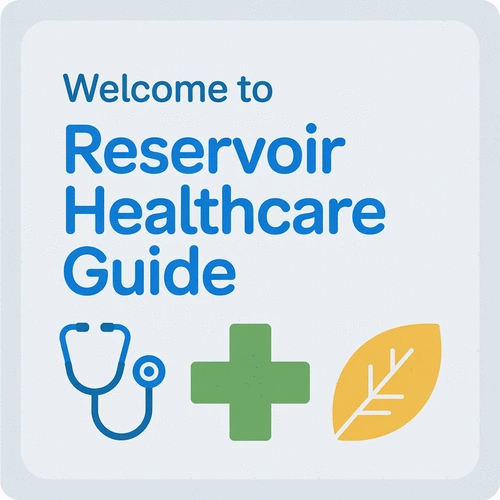As you navigate the healthcare landscape, understanding your rights as a patient is not just beneficial—it's essential. Knowing what to expect can empower you to advocate for your health and well-being effectively. Here are some key insights that will help you make informed decisions at Reservoir Private Hospital.
What You Will Learn
- You have the right to control access to your personal health information, ensuring your privacy is respected.
- Informed consent is vital; you must receive comprehensive information about treatments before proceeding.
- Patient advocates at Reservoir Private Hospital can assist you in navigating your healthcare journey effectively.
- Understanding healthcare regulations like the Privacy Act 1988 empowers you to protect your rights.
- Maintaining patient autonomy means you can accept or refuse treatments based on your values and preferences.
- Community resources can enhance your advocacy efforts and provide additional support for navigating healthcare challenges.
- A personalized checklist can facilitate family involvement in care decisions, ensuring no critical details are overlooked.
Patient Rights and Support at Reservoir Private Hospital
This visual summarizes key aspects of patient rights, support services, and family empowerment at Reservoir Private Hospital, reflecting the commitment to transparent and ethical care.
Understanding Your Rights as a Patient at Reservoir Private Hospital
As patients, understanding our rights is crucial for navigating the healthcare landscape effectively. At Reservoir Healthcare Guide, we believe that being informed can empower you to advocate for your own health and well-being. This section will illuminate key aspects of your rights at Reservoir Private Hospital, focusing on privacy, consent, and the support services available to you and your family.
Protecting Your Privacy and Confidentiality
Your privacy is a fundamental right in the healthcare system. This means that you have the right to control who has access to your personal health information. It’s essential to know what this entails for you as a patient. Understanding your right to privacy allows you to feel secure when discussing sensitive health issues.
Your Right to Privacy: What It Means in Healthcare
In healthcare, your right to privacy refers to the protection of your personal and medical information. Not only does this right guard against unauthorized access to your data, but it also ensures that your consent is sought before any information is shared. This principle is vital to maintaining your trust in healthcare providers. For a broader understanding of patient rights, including confidentiality, you can refer to resources like the Patient Bill of Rights.
How Reservoir Private Hospital Safeguards Your Information
Reservoir Private Hospital takes your privacy seriously. They implement multiple layers of security to protect your confidential information, including:
- Encryption of electronic health records to prevent unauthorized access.
- Strict access controls that limit who can view your information.
- Regular training for staff on privacy policies and practices.
These measures ensure that you can trust the hospital with your health data, knowing it's handled with the utmost care.
Health Information Privacy Regulations You Should Know
Familiarizing yourself with health information privacy regulations can empower you even further. In Australia, the Privacy Act 1988 is a key piece of legislation that governs how your personal health information is managed. Understanding your rights under this act can help you navigate any concerns regarding your privacy.
Informed Consent and Its Importance
Informed consent is a foundational aspect of patient rights. It ensures that you have a clear understanding of the procedures, risks, and benefits before any medical intervention. At Reservoir Healthcare Guide, we emphasize how crucial it is for patients to be actively involved in their healthcare decisions.
What Informed Consent Entails for Patients
Informed consent means that before undergoing any treatment, you should receive comprehensive information regarding:
- The nature of the treatment or procedure.
- The potential risks and benefits associated with it.
- Alternative treatment options available to you.
Knowing this empowers you to make educated decisions about your health. Further details on the ethical considerations of informed consent can be found at the National Center for Biotechnology Information.
Navigating Consent Forms: A Step-by-Step Guide
When you arrive at Reservoir Private Hospital, you’ll encounter consent forms. Here’s a simple guide to help you navigate them:
- Read the form carefully, ensuring you understand each section.
- Ask questions if any part is unclear; don't hesitate to seek clarification.
- Discuss your concerns with your healthcare provider before signing.
- Keep a copy of the signed document for your records.
This process ensures that you are fully informed and comfortable with your healthcare choices.
The Role of Patient Autonomy in Healthcare Decisions
Your autonomy as a patient means you have the right to make decisions regarding your health. This includes the ability to accept or refuse treatment based on your preferences and values. Knowing your rights enhances your confidence in advocating for your health needs at Reservoir Private Hospital.
Support Services Designed for Patients and Their Families
Healthcare can be overwhelming, but support services are available to ease your journey. At Reservoir Healthcare Guide, we want to ensure that you and your family feel supported every step of the way.
Accessing Patient Advocacy Services
Patient advocacy services play a crucial role in helping you navigate the healthcare system. These advocates are dedicated to ensuring that your rights are respected and that you receive the best possible care.
The Role of Patient Advocates at Reservoir Private Hospital
Patient advocates at Reservoir Private Hospital serve as your allies. They are trained professionals who:
- Assist in understanding your rights and options.
- Help communicate your needs to healthcare providers.
- Guide you through complex medical decisions.
This support can make a significant difference in your healthcare experience.
How Advocates Can Help Navigate Healthcare Challenges
Advocates can help you tackle various challenges you might face, such as:
- Finding the right specialists for your condition.
- Addressing billing concerns or insurance questions.
- Ensuring accessibility to necessary resources.
With their assistance, you can approach your healthcare journey with more confidence.
Community Resources for Enhanced Patient Advocacy
In addition to hospital advocates, several community resources are available to support you. Local organizations often host workshops and provide materials to educate patients and families about their rights and options. Connecting with these resources can enhance your advocacy efforts and ensure you feel empowered in your healthcare journey.
Frequently Asked Questions About Patient Rights
Q: What are my fundamental rights as a patient at Reservoir Private Hospital?
A: Your fundamental rights include privacy and confidentiality of your health information, the right to informed consent before any treatment, and the right to patient autonomy, meaning you can accept or refuse treatment based on your preferences and values.
Q: How does Reservoir Private Hospital protect my privacy?
A: Reservoir Private Hospital safeguards your information through encryption of electronic health records, strict access controls, and regular staff training on privacy policies. They also adhere to regulations like the Privacy Act 1988.
Q: What does "informed consent" mean for me?
A: Informed consent means you must receive comprehensive information about any proposed treatment, including its nature, potential risks, benefits, and alternative options, before you agree to it. This empowers you to make educated decisions about your health.
Q: Can I refuse treatment if I don't agree with it?
A: Yes, patient autonomy gives you the right to accept or refuse treatment based on your personal preferences and values. Your healthcare providers will discuss all options with you to ensure you make an informed choice.
Q: What is the role of a patient advocate at Reservoir Private Hospital?
A: Patient advocates serve as your allies. They help you understand your rights and options, communicate your needs to healthcare providers, and guide you through complex medical decisions to ensure you receive the best possible care.
Q: How can my family be involved in my care decisions?
A: Families can be effectively involved by understanding patient rights, keeping records of medical information, asking questions, ensuring consent is obtained for procedures, and being aware of grievance procedures. A personalized checklist can also help facilitate discussions with healthcare providers.
We Want to Hear From You!
How confident do you feel about navigating your rights as a patient? Share your thoughts below:
Empowering Families: Practical Steps for Patient Advocacy
As the founder of Reservoir Healthcare Guide, I understand that navigating the healthcare system can often feel overwhelming for families. That's why it's essential to empower families to become effective advocates for their loved ones. By being informed and prepared, you can help ensure that patient rights are respected and that quality care is delivered.
One of the first steps in this advocacy journey is to exercise patient rights effectively. This means understanding what those rights are and actively utilizing them to improve the patient's healthcare experience.
How to Exercise Patient Rights Effectively
Empowering families starts with knowledge. Here’s a straightforward checklist you can use to ensure family involvement in care decisions:
- Understand the patient’s rights in healthcare.
- Keep a record of all medical information and communications.
- Ask questions and seek clarifications about treatment options.
- Ensure that consent is obtained before any procedure.
- Be aware of the grievance procedure in case of concerns.
By following this checklist, families can be proactive in participating in healthcare decisions, ensuring their loved ones receive the respect and care they deserve.
Creating a Checklist for Family Involvement in Care
A tailored checklist is a handy tool for family members during hospital visits. It can be as simple as:
- What medications is the patient taking?
- What are the expected outcomes of the proposed treatments?
- Who are the key healthcare providers involved in the patient’s care?
- What follow-up steps are necessary after discharge?
This checklist can facilitate meaningful discussions with healthcare providers, ensuring that no critical details are overlooked.
Understanding Healthcare Regulations Impacting Patient Rights
It's also crucial to familiarize yourself with healthcare regulations that impact patient rights. Each state may have specific laws that protect patients, and knowing these can enhance your advocacy efforts. For instance, in Victoria, regulations like the Health Records Act ensure that your loved one's health information is kept confidential.
By understanding and leveraging these regulations, families can better advocate for their loved ones, ensuring their rights are upheld throughout the care process.
Ensuring Quality and Ethical Care at Reservoir Private Hospital
Providing quality and ethical care is a priority at Reservoir Private Hospital. As a community-focused healthcare resource, we strive to maintain high standards of care through continuous quality improvement and ethical practices.
Understanding the Standards of Care and Ethical Practices
In our commitment to quality, it’s essential to recognize how Reservoir Private Hospital maintains these standards. Here are some of the key practices we uphold:
- Regular staff training and education on best practices.
- Patient feedback mechanisms to enhance service delivery.
- Adherence to local and national safety regulations.
- Collaboration with community health initiatives to address broader health needs.
These practices not only ensure that our patients receive the best possible care but also cultivate an environment where ethical standards are at the forefront of our service delivery.
How Reservoir Private Hospital Maintains Quality Improvement
Quality improvement is a continuous process that involves assessing and enhancing our services. This includes:
- Conducting regular audits of patient care processes.
- Implementing evidence-based practices across departments.
- Encouraging multidisciplinary team collaboration to address complex cases.
Such measures ensure that our patients receive comprehensive care that evolves with their needs, ultimately improving health outcomes.
The Role of Medical Ethics in Patient Care Quality
Medical ethics play a pivotal role in shaping the standards of care at Reservoir Private Hospital. This involves:
- Respecting patient autonomy in decision-making.
- Prioritizing informed consent before treatments.
- Ensuring equitable access to healthcare services.
By adhering to these ethical principles, we not only build trust with our patients and their families but also create a supportive environment that fosters healing and wellness.
Summary and Resources for Further Support
As we wrap up, remember that navigating healthcare is a shared journey. At Reservoir Healthcare Guide, we’re here to support you every step of the way.
Connecting with Hospital Resources and Contacts
It’s vital to take advantage of the numerous resources available to you at Reservoir Private Hospital. Here are some support services you can access:
- Patient advocate contact information for personalized assistance.
- Workshops on patient rights and healthcare navigation.
- Online resources that provide comprehensive information about available services.
Utilizing these resources not only facilitates effective communication but also enhances the overall healthcare experience for patients and their families.
Final Thoughts on Patient Rights and Family Support
In closing, I encourage every family to take an active role in their loved one's healthcare journey. Advocacy begins with understanding rights and responsibilities, and your involvement can make a significant difference.
Keep asking questions, stay informed, and remember that you are not alone. Together, we can foster an environment where patient care is prioritized, and every voice is heard!
Recap of Key Points
Here is a quick recap of the important points discussed in the article:
- Patients have a fundamental right to privacy, ensuring their health information is kept confidential and secure.
- Informed consent is essential; patients should understand procedures, risks, benefits, and alternatives before treatment.
- Patient advocates at Reservoir Private Hospital assist in navigating healthcare options and ensuring patient rights are respected.
- Family involvement in care decisions is crucial; keep records, ask questions, and understand the grievance procedures.
- Quality care is maintained through continuous staff training, patient feedback, and adherence to ethical practices.








